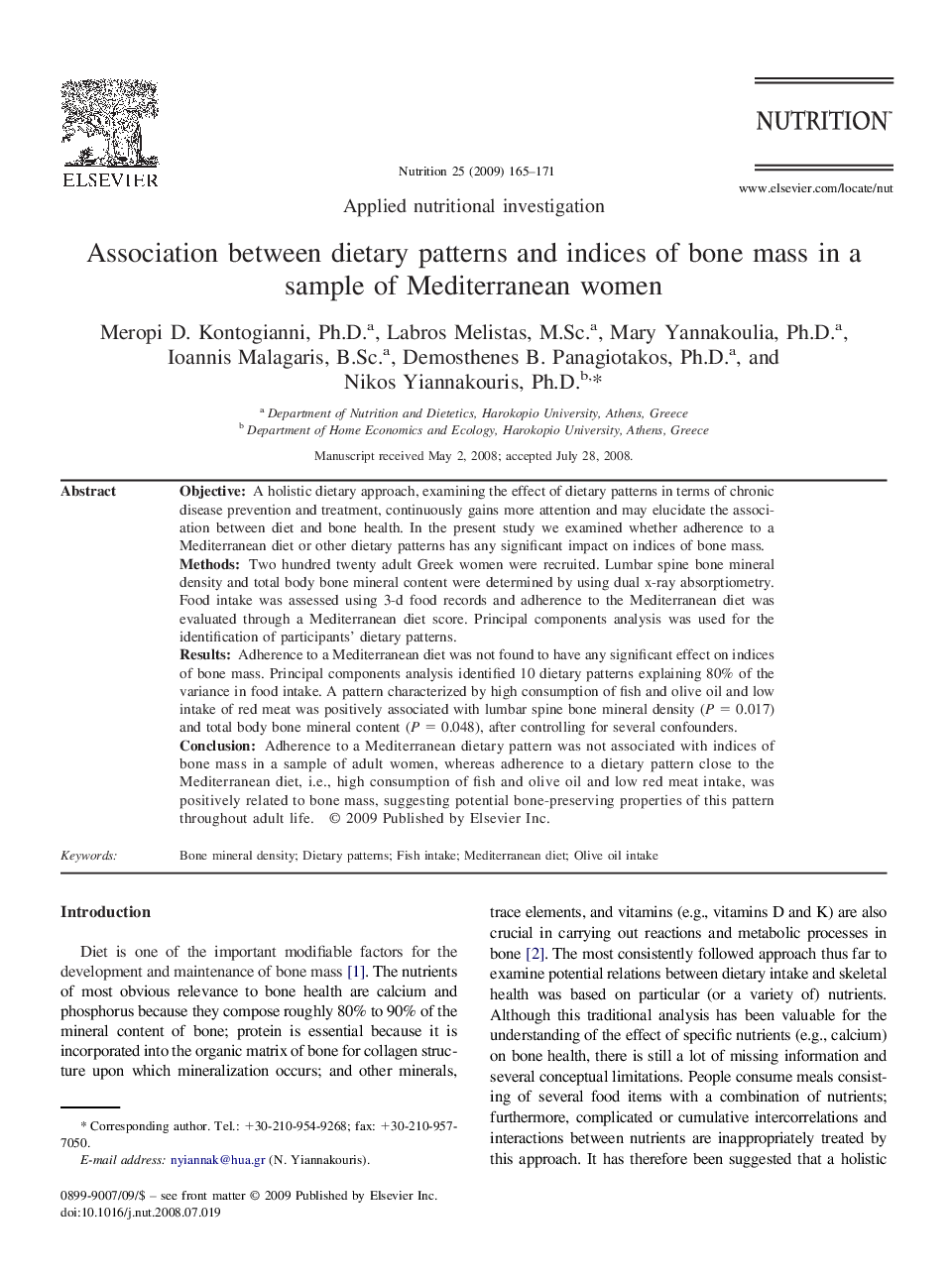| Article ID | Journal | Published Year | Pages | File Type |
|---|---|---|---|---|
| 3277074 | Nutrition | 2009 | 7 Pages |
ObjectiveA holistic dietary approach, examining the effect of dietary patterns in terms of chronic disease prevention and treatment, continuously gains more attention and may elucidate the association between diet and bone health. In the present study we examined whether adherence to a Mediterranean diet or other dietary patterns has any significant impact on indices of bone mass.MethodsTwo hundred twenty adult Greek women were recruited. Lumbar spine bone mineral density and total body bone mineral content were determined by using dual x-ray absorptiometry. Food intake was assessed using 3-d food records and adherence to the Mediterranean diet was evaluated through a Mediterranean diet score. Principal components analysis was used for the identification of participants' dietary patterns.ResultsAdherence to a Mediterranean diet was not found to have any significant effect on indices of bone mass. Principal components analysis identified 10 dietary patterns explaining 80% of the variance in food intake. A pattern characterized by high consumption of fish and olive oil and low intake of red meat was positively associated with lumbar spine bone mineral density (P = 0.017) and total body bone mineral content (P = 0.048), after controlling for several confounders.ConclusionAdherence to a Mediterranean dietary pattern was not associated with indices of bone mass in a sample of adult women, whereas adherence to a dietary pattern close to the Mediterranean diet, i.e., high consumption of fish and olive oil and low red meat intake, was positively related to bone mass, suggesting potential bone-preserving properties of this pattern throughout adult life.
